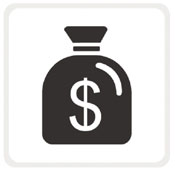 FHA Bailout Appears Likely
FHA Bailout Appears Likely
Government officials said that a taxpayer bailout of the FHA appears likely based on increased mortgage defaults. The FHA has traditionally had higher default levels than Fannie Mae or Freddie Mac due to more lenient underwriting standards. For those familiar with the FHA lending program, a taxpayer bailout comes as no surprise (see FHA – Ready to Join Fannie and Freddie).
FHA Losses Spur Talk Of A Taxpayer Bailout
WASHINGTON — Rising mortgage defaults could force the Federal Housing Administration to seek a taxpayer bailout for the first time in its 75-year history, housing officials and lawmakers said during a Senate hearing Thursday.
If defaults drain the FHA’s insurance fund, the Obama administration will have to decide whether to ask Congress for taxpayer money or raise the premiums it charges to borrowers. That decision will be spelled out in President Barack Obama’s 2010 budget, Housing and Urban Development Secretary Shaun Donovan told lawmakers.
“We are looking very closely at that issue — at the premiums that we charge, at the losses that we have,” Mr. Donovan said.
Rising defaults are now eating through the FHA’s cushion of reserves. Roughly 7.5% of FHA loans were seriously delinquent at the end of February, up from 6.2% a year earlier. The FHA’s reserve fund fell to about 3% of its mortgage portfolio in the 2008 fiscal year, down from 6.4% in the previous year. By law, it must remain above 2%.
Asked at the hearing whether the FHA would need a bailout, HUD Inspector General Kenneth M. Donohue said he couldn’t predict. “Based on the numbers we’re seeing, I think it’s going in the wrong direction,” he said.
The FHA often finds itself balancing two sometimes competing goals: fulfilling its mission of providing affordable loans for first-time home buyers while remaining self-funded.
Bailout Or FHA Mortgage Insurance Increase?
The alternative to a taxpayer bailout is to raise the mortgage insurance premiums for FHA borrowers. FHA mortgage insurance premiums are already quite high and can significantly increase the total monthly mortgage payment. The insurance premiums were increased last year on a risk adjusted scale so that borrowers with lower credit scores or higher loan to values would pay an increased premium.
There are two components to FHA mortgage insurance premiums for a borrower – a one time upfront mortgage insurance premium (UFMIP) and a continuing monthly mortgage insurance payment (MI). The rates can be as high as 2.25% up front (UFMIP) and .55% monthly (MI) depending on credit score and loan to value. On a $250,000 mortgage a borrower could be charged as much as $5,625 for the UFMIP and $114.58 per month for the MI.
Instead of making the FHA program more restrictive and expensive for every borrower, it would make more sense to reduce the mortgage insurance premiums and tighten underwriting guidelines. Increasing the mortgage insurance premiums only serves to defeat the FHA’s mission of making first time home ownership affordable. Turning down less qualified applicants who are more likely to default would reduce the FHA’s losses and allow a reduction in the mortgage insurance premiums.
The FHA is currently the only viable option to purchase or refinance a home for those who do not qualify under Fannie or Freddie guidelines, but the large FHA losses indicate that lending standards became far too lenient.
Whether or not insurance premiums will be raised remains to be seen, but a federal bailout of the FHA at this point is almost a certainty.